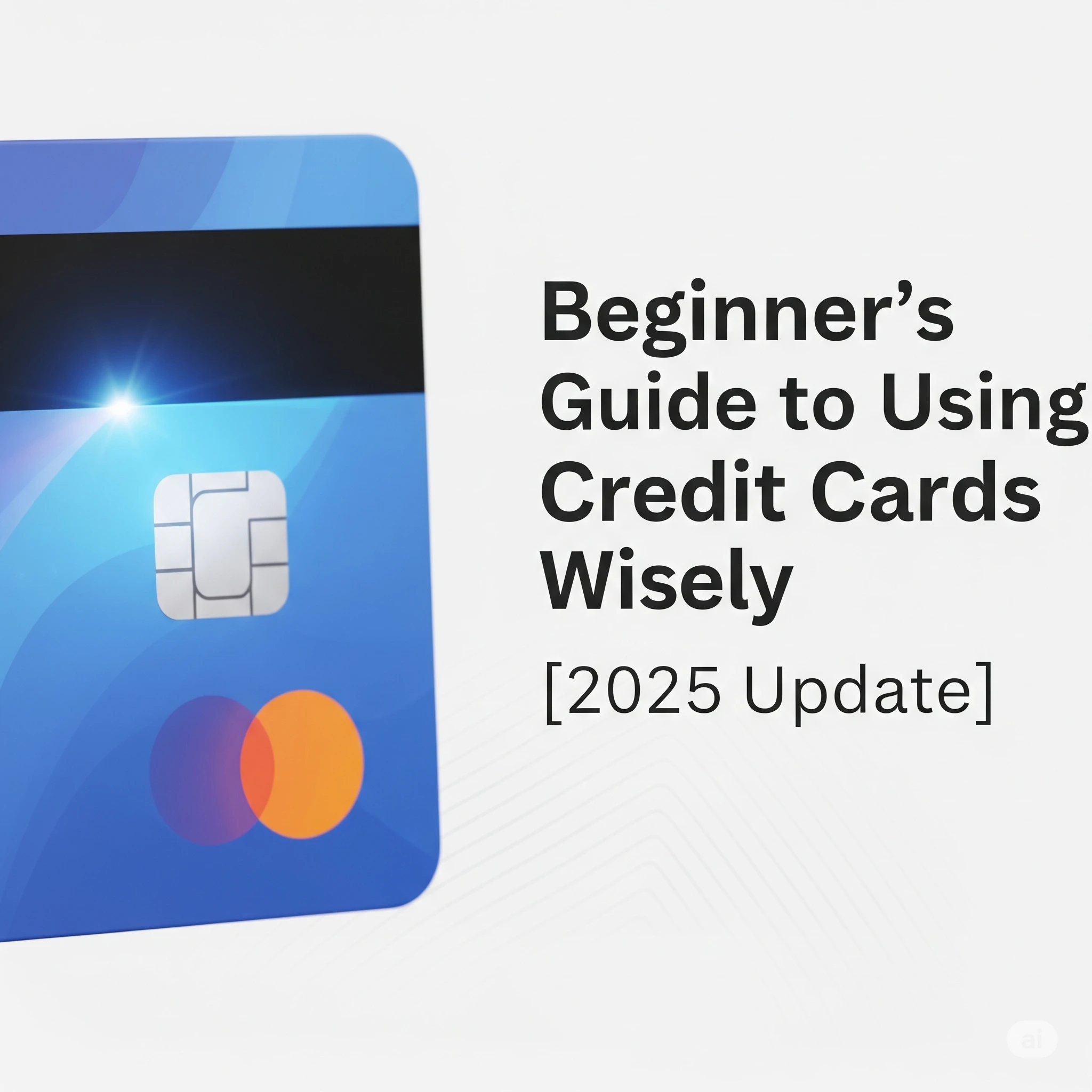India's gig economy is booming with over 15 million independent workers, yet traditional credit cards often fail to meet their unique financial needs. This comprehensive guide reveals the best credit cards specifically designed for freelancers, gig workers, and independent contractors in India.
Understanding the Freelancer Credit Card Challenge
The rise of India's digital economy has created unprecedented opportunities for independent professionals. From software developers and content creators to delivery partners and consultants, millions of Indians are embracing flexible work arrangements. However, the traditional banking system hasn't caught up with this revolution.
The primary challenges freelancers face include:
- Irregular income documentation
- Lack of salary slips or employment certificates
- Variable monthly earnings
- Limited credit history due to informal payment methods
- High rejection rates for traditional credit card applications
These obstacles have created a significant gap in the market, with most credit card products designed for salaried employees rather than independent professionals who need financial flexibility the most.
Top Credit Cards for Gig Workers and Freelancers
1. HDFC Bank Millennia Credit Card
Why it's perfect for freelancers: The HDFC Millennia card offers exceptional rewards on online spending, making it ideal for freelancers who frequently use digital platforms for work and payments.
Key Benefits:
- 5% cashback on online shopping (up to ₹1,000 per month)
- 2.5% cashback on online bill payments
- 1% cashback on offline purchases
- No annual fee for first year, ₹1,000 thereafter (waived on ₹1 lakh annual spend)
- Welcome bonus of ₹1,000 cashback
Eligibility for Freelancers: Minimum annual income of ₹3 lakhs with ITR documentation. Self-employed individuals can apply with business registration and bank statements.
2. SBI SimplyCLICK Credit Card
Designed with digital-first users in mind, this card offers excellent value for freelancers who rely heavily on online transactions and e-commerce platforms.
Key Benefits:
- 10X reward points on online shopping (partner merchants)
- 5X reward points on other online spends
- 1X reward points on offline purchases
- Annual fee of ₹499 (waived on ₹1 lakh annual spend)
- Movie ticket discounts and dining offers
Freelancer-Friendly Features: Accepts ITR documents for income proof and has a relatively straightforward application process for self-employed individuals.
3. ICICI Bank Amazon Pay Credit Card
For freelancers who frequently shop online and use Amazon services, this co-branded card offers unmatched value and convenience.
Key Benefits:
- 5% cashback on Amazon purchases (Prime members)
- 2% cashback on Amazon purchases (non-Prime)
- 2% cashback on bill payments through Amazon Pay
- 1% cashback on other purchases
- Lifetime free card with no annual fee
- Welcome bonus worth ₹2,000
Why Freelancers Love It: No annual fee burden, excellent cashback rates, and seamless integration with Amazon's ecosystem make it perfect for independent professionals.
4. Axis Bank Neo Credit Card
Specifically designed for young professionals and entrepreneurs, the Neo card offers flexibility and rewards that align with modern working patterns.
Key Benefits:
- Flat ₹100 cashback monthly on minimum ₹20,000 spend
- No annual fee
- Contactless payment technology
- Instant digital card upon approval
- Flexible reward redemption options
Freelancer Advantage: Lower income requirements and acceptance of alternative income documentation make it accessible for emerging professionals.
5. Kotak 811 #DreamDifferent Credit Card
Tailored for millennials and Gen Z professionals, this card offers unique benefits for digital-native freelancers.
Key Benefits:
- 4X reward points on weekends
- 2X reward points on weekdays
- Lifetime free with no annual fee
- BookMyShow vouchers worth ₹6,000 annually
- Flexible EMI options on large purchases
Special Features for Gig Workers: Accelerated rewards during weekends when many freelancers have higher spending, plus entertainment benefits for work-life balance.
Essential Features to Look for as a Freelancer
Income Documentation Flexibility
Traditional employment verification doesn't apply to freelancers, so look for cards that accept:
- Income Tax Returns (ITR): Most reliable documentation for freelancers
- Bank statements: 6-12 months showing regular income deposits
- Professional registration: GST registration, professional licenses
- Client contracts: Long-term freelance agreements
- Portfolio income proof: Multiple income source documentation
Expense Management Benefits
Freelancers need robust expense tracking for tax purposes. Look for cards offering:
- Detailed monthly statements with merchant category codes
- Mobile app integration for expense categorization
- Digital receipt storage
- API integration with accounting software
- Business expense segregation features
Cash Flow Management Features
Irregular income requires flexible credit features:
- High credit limits: To manage cash flow gaps
- Flexible payment dates: Aligning with project payment cycles
- EMI conversion options: For large business expenses
- Overlimit facilities: Emergency credit access
- Grace period benefits: Extra time for payment processing
Application Strategy for Freelancers
Building a Strong Application Profile
1. Maintain Consistent Banking: Use a primary bank account for at least 12 months with regular deposits to demonstrate income stability.
2. Document Everything: Keep meticulous records of:
- Client payments and invoices
- Professional certifications
- GST registration (if applicable)
- Professional memberships
- Business licenses or registrations
3. Start with Your Primary Bank: Banks are more likely to approve customers with existing relationships. If you have a salary account that you've maintained, leverage that relationship.
4. Consider Secured Credit Cards Initially: If rejected for unsecured cards, start with secured options to build credit history, then upgrade later.
Common Application Mistakes to Avoid
- Inflating income figures: Be honest about earnings; banks verify through ITR
- Applying to multiple banks simultaneously: Multiple inquiries can hurt credit scores
- Incomplete documentation: Ensure all required documents are properly formatted
- Ignoring credit score: Check and improve your CIBIL score before applying
Tax Benefits and Business Expense Management
Maximizing Tax Deductions
Credit cards can be powerful tools for freelancers to maximize business deductions:
Deductible Expenses Through Credit Cards:
- Professional software subscriptions
- Office equipment and supplies
- Internet and communication expenses
- Professional development courses
- Business travel and accommodation
- Marketing and advertising costs
- Professional consultation fees
Pro Tip: Use separate credit cards for business and personal expenses to simplify tax filing and maximize deductions.
Record Keeping Best Practices
Effective expense management requires systematic record keeping:
- Photograph all receipts immediately
- Use accounting apps that sync with credit card statements
- Categorize expenses in real-time
- Maintain separate cards for different business verticals
- Review and reconcile monthly statements promptly
Building Credit History as a Freelancer
Establishing Financial Credibility
For freelancers, building credit history requires strategic planning:
Start Small, Think Big:
- Begin with basic cards: Even if limits are low initially
- Use consistently: Regular usage shows active credit management
- Pay on time, every time: Payment history is the most critical factor
- Keep utilization low: Use less than 30% of available credit
- Request limit increases: As income grows, request higher limits
Credit Score Improvement Strategies
Freelancers can build excellent credit scores by:
- Diversifying credit types: Mix of credit cards, personal loans, etc.
- Maintaining old accounts: Length of credit history matters
- Monitoring credit reports: Regular checks for errors or fraud
- Avoiding too many applications: Space out credit applications
- Using credit for planned expenses: Avoid impulsive credit usage
Digital Tools and Integration
Essential Apps for Freelancer Credit Management
Expense Tracking:
- Zoho Expense: Comprehensive expense management with credit card integration
- Cleartax: Tax-focused expense tracking with receipt scanning
- ET Money: Credit card bill management and spending analysis
- Walnut: Automatic expense categorization from SMS alerts
Financial Planning:
- Mint: Budget tracking with credit card synchronization
- Money Lover: Multi-account financial management
- 1Money: Simple expense tracking with category-wise analysis
Automation Benefits
Smart freelancers leverage automation for:
- Automatic bill payments to avoid late fees
- Spending alerts to stay within budgets
- Reward redemption reminders
- Credit utilization monitoring
- Due date notifications across multiple cards
Future of Credit Cards for Gig Workers
Emerging Trends
The credit card industry is evolving to better serve freelancers:
Technology-Driven Solutions:
- AI-based underwriting: Alternative data for income assessment
- Real-time income verification: Bank account analysis for instant approval
- Gig-economy partnerships: Cards linked to freelance platforms
- Flexible credit limits: Dynamic limits based on income patterns
Specialized Products:
- Industry-specific credit cards (designers, developers, consultants)
- Platform-linked cards (Upwork, Fiverr, Freelancer.com)
- Subscription-based credit services
- Peer-to-peer lending integration
Expert Tips for Success
Financial Discipline:
- Treat credit as a tool, not free money: Maintain spending discipline
- Create emergency funds: Don't rely solely on credit for cash flow gaps
- Plan for seasonal variations: Many freelance industries have seasonal patterns
- Invest in financial education: Understanding credit products saves money
- Network with other freelancers: Share experiences and recommendations
Strategic Usage:
- Use cards for business expenses to build transaction history
- Leverage reward programs for frequently purchased items
- Take advantage of promotional offers and cashback campaigns
- Consider multiple cards for different expense categories
- Regularly review and optimize your credit card portfolio
Conclusion
The landscape for gig workers and freelancers in India is rapidly evolving, with financial institutions beginning to recognize the unique needs of independent professionals. While challenges remain in income documentation and credit assessment, numerous credit card options now cater specifically to this growing demographic.
Success as a freelancer with credit cards requires strategic selection, disciplined usage, and leveraging the right tools and features. By choosing cards that align with your spending patterns, maintaining excellent payment discipline, and utilizing modern financial management tools, freelancers can build strong credit profiles while maximizing the benefits of plastic money.
Remember, the best credit card for you depends on your specific income patterns, spending habits, and financial goals. Start with one card that matches your primary needs, build a strong credit history, and gradually expand your credit portfolio as your freelance business grows.
The gig economy represents the future of work in India, and with the right financial tools, freelancers can achieve the same financial flexibility and benefits that were once exclusive to traditional employees. Choose wisely, spend responsibly, and let your credit cards become powerful allies in your freelance journey.
Ready to apply for your first freelancer-friendly credit card? Visit CreditPlanner.in for personalized recommendations and application assistance.


